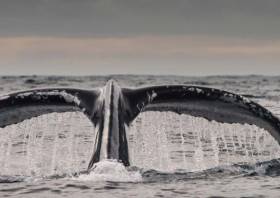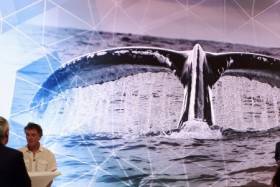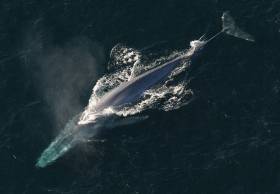Displaying items by tag: Ireland's Deep Atlantic
New Online Resources Bring ‘Ireland’s Deep Atlantic’ Into The Classroom
TV documentary Ireland’s Deep Atlantic will feature in new online classroom resources for Junior Cert students, it has been announced.
Ireland’s Deep Atlantic — produced by Sea Fever Productions and supported by the Marine Institute, BAI and the Environmental Protection Agency — sees filmmaker Ken O'Sullivan embark on a series of voyages in the North Atlantic in search of blue whales, sharks and deep-water coral reefs.
O’Sullivan filmed part of the series on board the Marine Institute’s research vessel the RV Celtic Explorer and documented coral reefs at a depth of 3,000 metres using the ROV Holland 1.
The series joins two other Irish-produced and publicly funded TV programmes used to create the new online classroom resources.
Business Studies students will use the series, including video clips of the RV Celtic Explorer and scientists, to learn about consumer behaviour and sustainable development, and the impact of economic growth on society and the environment.
Geography students, meanwhile, will learn about the ‘Real Map of Ireland’ and the importance of Ireland's ocean territory. The students will also learn about the exploitation of water, fish stocks, forestry, and soil and the relationships between the physical world, tourism and transport.
Ken O’Sullivan welcomed the new resources, saying: “It’s just wonderful now to realise that every teenager in Ireland will see our beautiful, fertile oceans and learn not just about the rich life within them, but the impact of human behaviour on our oceans with things like consumer spending habits, marine plastics and also the value of eco-tourism to coastal communities.
“Ireland’s Deep Atlantic is the first documentary to be used in this way and the platform has now been built for RTÉ to host many more publicly funded documentaries in this way for the secondary school education curriculum.”
Teachers and students can access the educational material and the programme clips referenced from the RTÉ Learn website.
#MarineWildlife - Ireland's Deep Atlantic is a new documentary series that airs on RTÉ One this weekend.
Ireland’s Deep Atlantic sees underwater cameraman Ken O’Sullivan embark on a series of voyages out into the open North Atlantic in search of large whales, sharks and cold water coral reefs 3,000 down on Ireland’s deep sea bed.The two-part series explores many of Ireland's sea creatures for the first time, documenting their behaviour, in addition to investigating the health of our deep Atlantic waters.
The Marine Institute was delighted to assist Ken with his expedition to capture this footage.
Speaking about the new series and working with the Marine Institute Ken O’Sullivan said:
" For me as a film maker, and some of the amazing people I’ve been lucky to work with, our ideal is simply to document and create awareness of our incredibly rich oceanic world in Ireland and all around the North Atlantic. By braving the open Atlantic again and again, in ships, sail boats and an open RIB boat, we slowly but eventually encountered some amazing sea life. An enormous group of basking sharks behaving in a way never before documented globally, blue fin tuna feeding alongside dolphins and enormous migrating whales, while in the deep ocean, research scientists brought us and our cameras 3,000 metres down to the sea bed where we documented coral reefs every bit as beautiful and rich in surrounding life as their tropical relatives, all in Ireland. And much more. Irish national research vessel, Celtic Explorer with its ROV submersible in the water.”
Ireland’s Deep Atlantic begins on Sunday, 22nd April at 9.30pm on RTÉ One for more info click this LINK.
Two days later, the Marine Institute is also delighted to welcome Ken O’Sullivan to the Marine Institute's Auditoriumin in Oranmore, Galway on Tuesday 24th April (1.15-2.15pm) for a special screening of the first episode of Ireland’s Deep Atlantic.
New TV Series To Explore ‘Ireland’s Deep Atlantic’
#OnTV - Ireland’s Deep Atlantic is a new three-part TV documentary exploring the fascinating sights in the waters west of this island.
The series will be broadcast as part of RTÉ’s recently announced autumn schedule, according to TheJournal.ie, and comprises footage captured by Sea Fever Productions from the RV Celtic Explorer on expedition in the North Atlantic.
The team behind Ireland’s Deep Atlantic previously produced Ireland’s Ocean, a four-part series for RTÉ that documented the bounty of wildlife closer to Irish shores, and before that the Irish-language six-parter Farraigí na hÉireann for TG4.
TheJournal.ie has more on the story HERE.


























































